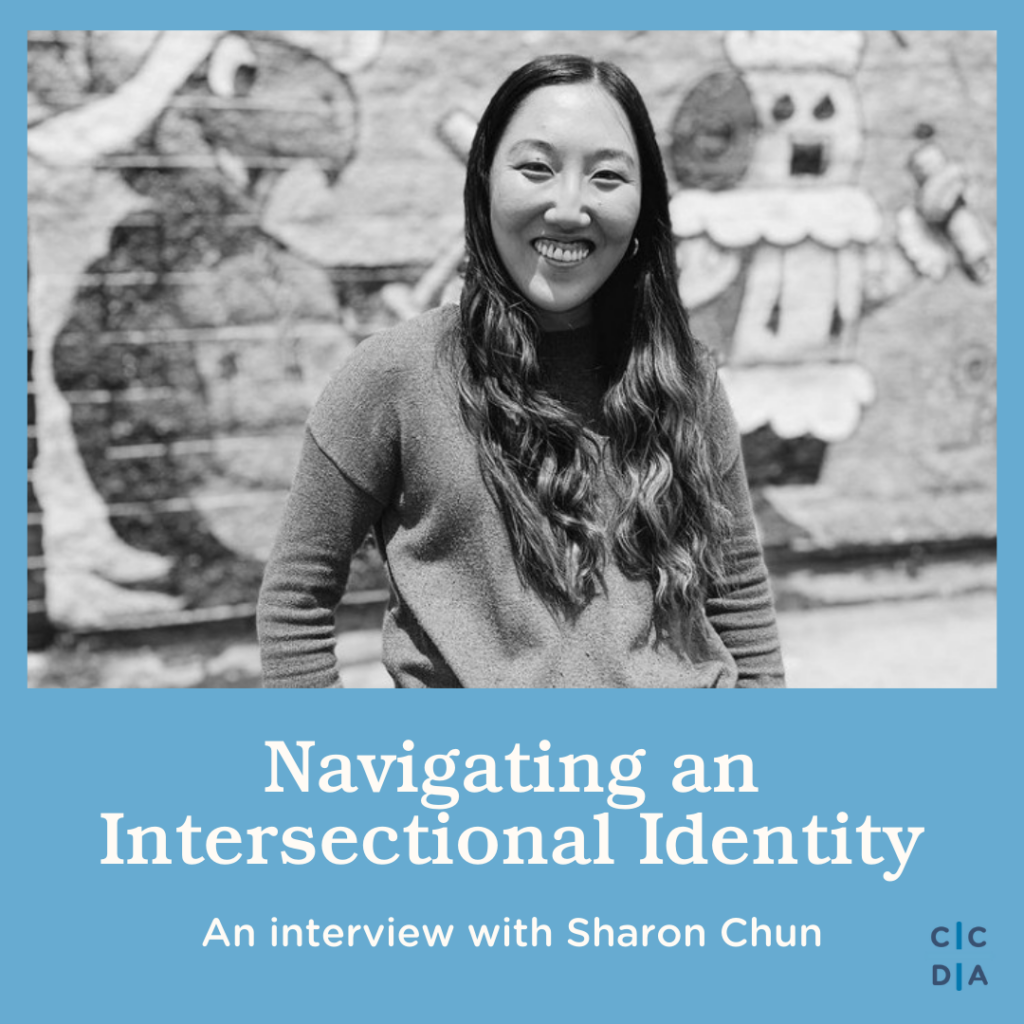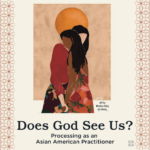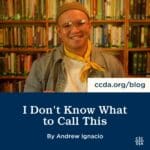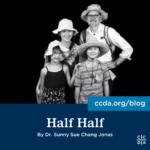
I chatted recently with a friend, “Kristine,” who came back to teach and live in a western suburb of Chicago after visiting her home (not in America) and finishing her doctorate. We had a great time talking about work, church, family, names, etc. Our conversation reminded me of the honor it is to work and live in spaces where I am the minority. Don’t get me wrong; my lived experience as a minority is tiring as well, but I love God’s ability to strengthen already present assets and attributes in us. What used to be my source of submission and shame: my intersectional identity, is now a place for celebration, connection, and challenge to use all facets of who God made me to love my neighbors and neighborhood.
Kimberlé Crenshaw coined the word “intersectionality” (1989) to not only identify the combination of her identity as female and black, but also to place it socioculturally within the context of her workplace as an American attorney. She wanted to “…describe how systems of oppression overlap to create distinct experiences for people with multiple identity categories.” By talking to Kristine and other women, I see and understand more deeply each of our stories, and each of our own backgrounds and complexities.
I had the opportunity to talk with Sharon Chun, a coworker of sorts, since we both work for a large urban district of over 650 schools. We connected at the last CCDA conference in Kansas City at the Education Equity networking session, and I invited her to share her story of navigating her intersectional identity with us. As she shared about her identity, vocation, and other elements of God’s Spirit in her, it was beautiful for me to behold. I hope this interview encourages you to see and behold the women in your life and the ways they are navigating similar complex, intersectional identities.
How would you describe your intersectional identity?
The main parts of my intersectional identity would probably be a Korean American woman, who grew up in poverty, Christian, and now exploring what it means to be an educator. I grew up in a predominantly Korean community in Southern California. Most of my community looked like me and had similar backgrounds, so I never thought about my identity. Then, as our family abruptly moved to the suburbs of Chicago to a predominantly white community when I was in high school, it really shifted the way I looked at my Asian identity. I became so uncomfortable with the fact that I stood out, which I’ve never had to experience in my life. I didn’t know how to interact with my peers at school, who weren’t Asian, let alone share my religious beliefs. Back in California, every one of my friends shared my beliefs and/or race. Also, our move was prompted by my dad’s first full-time position in ministry, so this added a layer of living with financial hardships for the first time. The Korean church that my dad worked at was one of the wealthiest Korean communities, so trying to navigate being in a lower socio-economic status while being immersed in a wealthy community was difficult.
I share all that because those experiences have really shaped my intersectional identity. As I transitioned to life in the midwest, my love for my identity as a Korean-American grew in sharing my culture with other BIWOC. We navigated our young adult years together in college celebrating our differences in culture and backgrounds, but also the similarities in how God has brought us together through our love for His people and Him.
How do you navigate your identity in the different communities where you live, work, go to church, etc.?
My intersectionality of being an Asian American woman, who grew up in poverty, has placed me where I don’t always fit into predominantly Asian spaces. My parents have also never once mentioned to my siblings and I to have a career in the medical field, law, business, or etc. Because of that, I was encouraged to go into a helping profession of social work for my bachelors. Later on in my thirties, I shifted gears as I knew I wanted to teach special education in Chicago. I find that this place in life with my profession and where I teach seems specific to the intersectionality of my Asian American identity and of my family’s socio-economic status growing up. As I’m a special education teacher in the west side of Chicago, I usually find myself being the only one or one of the few Asian Americans in my work place. I’ve had many racist comments thrown at me by my students and have been gaslit by my co-workers as I shared my experiences of being racially profiled by parents and students. As the educator and the professional, I’ve held those tensions on my own very often because I prioritize my students’ needs and growth.
Tell me more about other aspects of your identity.
Another intersectionality is being Korean American. My parents raised us learning Korean, watching Korean TV shows, eating Korean food, and going to a Korean church. Outside of our home and our church, I was an American. I spoke English with my classmates, even my other Korean peers. As I got older and moved to the midwest, I became more aware of the clashes between both identities. My experiences weren’t fully understood by my parents between the cultural differences and language barriers. I found myself envious of my college friends, who aren’t Korean, in their relationships with their parents and even grandparents. Without language and cultural differences being a factor, they had a closeness to their parents that I couldn’t even imagine having with mine. I saw a huge clash in being Korean and American when I told my parents I started going to therapy. With therapy being so stigmatized, my parents seemed surprised and questioned it. I explained to them why I believed in therapy and continued to share in my journey of healing and finding freedom through it. For my Korean parents, who grew up in a culture where you don’t share your vulnerable experiences with anyone, it was a shift in thinking, but they were learning about the importance of it.
You mentioned employment contexts, but what about other spaces, like friendships, and church?
As I was looking for a church to call home, I wanted to find a multi-ethnic church that celebrated people from different backgrounds because I felt that described who I was. Between all my intersectional identities, it made sense to desire that in a church. I am thankful to have found a church that celebrates me in all my different identities.
What would you tell your younger self, what advice would you give her?
I would tell my younger self to celebrate her intersectional identity. Although it’s complex to navigate, it’s beautiful to come to a place to see how God has made us uniquely ourselves. The beauty is that even with someone who shares the same intersections as you or me will not have the same outlook and experiences as you or me, so there’s a beauty in celebrating who you are. I wouldn’t be where I am today in my profession, my church community, the dreams I have and even my love for the CCDA community if it wasn’t for all the intersectionality of my identity.
Thank you for sharing vulnerably and lucidly. I think many of us relate with parts of your story, and I admire some of the ways you have made intentional decisions and created frameworks to not only reflect the CCD principle of intentional location/relocation, but God’s working in your life, uniquely and specifically your own.
As C.S. Lewis said about the pursuit of genuine fellowship and Christian friendship with others, “We are surrounded by our betters… There are no ordinary mortals…” Let us celebrate this Women’s History Month surrounded by, humbled by, and grateful for each other in all of who we bring to the table. We honor our own and others’ intersectionality, as those identities make us better Christians and CCD practitioners.





